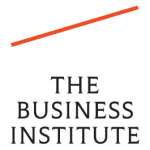IT Business Management program (ITBM) has been tailored to the needs of professionals who are interested in interdisciplinary approaches and seek a good foundation for their career advancement. Through the combination of business and management acumen with technical expertise, the ITBM program is designed to play a key role in preparing the next generation of leaders in the engineering sector in Bulgaria.
At the heart of complex, multi-dimensional organizations, software engineering involves more than just the development of modern information systems. Consequently, software engineers need to move beyond the boundaries of their job-specific expertise and enhance their professional profiles by acquiring managerial and interpersonal competences. Software engineers who aim to be future business leaders should not only possess such multiple skills, but also should be able to translate theoretical knowledge into business practices, engender interdisciplinary dialogues and communicate successfully in an international and intercultural environment.
Participant's profile
The ITBM participants want to become leaders who are capable of working in diverse teams to address the various business and management issues that arise in the software industry. Whether they want to:
• innovate in the enterprise,
• be a product manager,
• become an entrepreneur,
• manage a software development organization, or
• be a better software project manager or development lead,
our ITBM participants need to move beyond technology-only thinking, and gain the knowledge and confidence to apply the diverse business and management skills.













